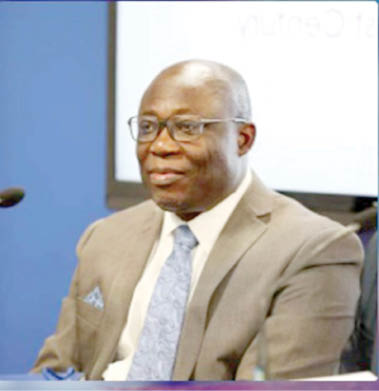Nigeria yet to adopt modern trend in publishing – Asein
The Director-General of the Nigerian Copyright Commission, Dr. John O. Asein, has said Nigeria is yet to adopt modern trends in publishing despite its continental dominance of technology in publishing. Asein, who was a keynote speaker at the opening of the 21st International Conference of the Nigeria International Book Fair (NIBF), which was held […]

Gbadega Adedapo, Chairman Nigeria Book Fair Trust
The Director-General of the Nigerian Copyright Commission, Dr. John O. Asein, has said Nigeria is yet to adopt modern trends in publishing despite its continental dominance of technology in publishing.
Asein, who was a keynote speaker at the opening of the 21st International Conference of the Nigeria International Book Fair (NIBF), which was held in Lagos, lamented that most publications in Nigeria are still in the traditional book formats, which limits their competition in the global market.
- Female governorship aspirants battle for relevance in Cross River
- I can’t be blackmailed out of Kano Central contest – Sen Lado
The book fair themed ‘Copyright and Sustainable Growth in the Book Industry: Setting New Agenda’ was put together by the Nigerian Book Fair Trust (NBFT), the umbrella body for major stakeholders in the nation’s book industry in collaboration with all stakeholders in the book ecosystem.
In the face of emerging technologies, Asein emphasized the need for right owners to explore new business models that can ensure easy access to legitimate creative content, and provide an efficient mechanism of licensing use of works.
The internet according to him has given book publishers and other content providers an entirely new way to provide content as an independent author with minimal resources can make his or her work accessible to a global audience.
While he noted that with the popularity of e-books and growth of the technology to support them, electronic publishing has become a lot easier; he expressed that despite the ease and wide-open marketplace, it becomes more important for publishers to take the necessary steps to protect their publications distributed on such platforms, by adopting suitable Digital Rights Management (DRM) solutions.
The NCC boss revealed that DRM protection can limit what a reader can do with an e-book, such as printing or copying of text into another document, and even restrict the reader from unauthorized sharing of the file.
“There is indeed no reason to be apprehensive of the digital platforms, especially considering that the new copyright bill has provided a framework for effective online enforcement of rights. More importantly, the online platform offers global market for products. The domestic market remains viable given the level of Internet and telephone penetration in Nigeria,” he said.
Earlier in his opening remark, the Chairman of the Nigerian Book Fair Trust (NBFT), Gbadega Adedapo, noted that book piracy, whether in print or digital form, is costing publishers around the world billions of dollars annually; saying, it creates significant harmful effects throughout the book value chain, hurting publishers, distributors and retailers, as well as authors and readers.
